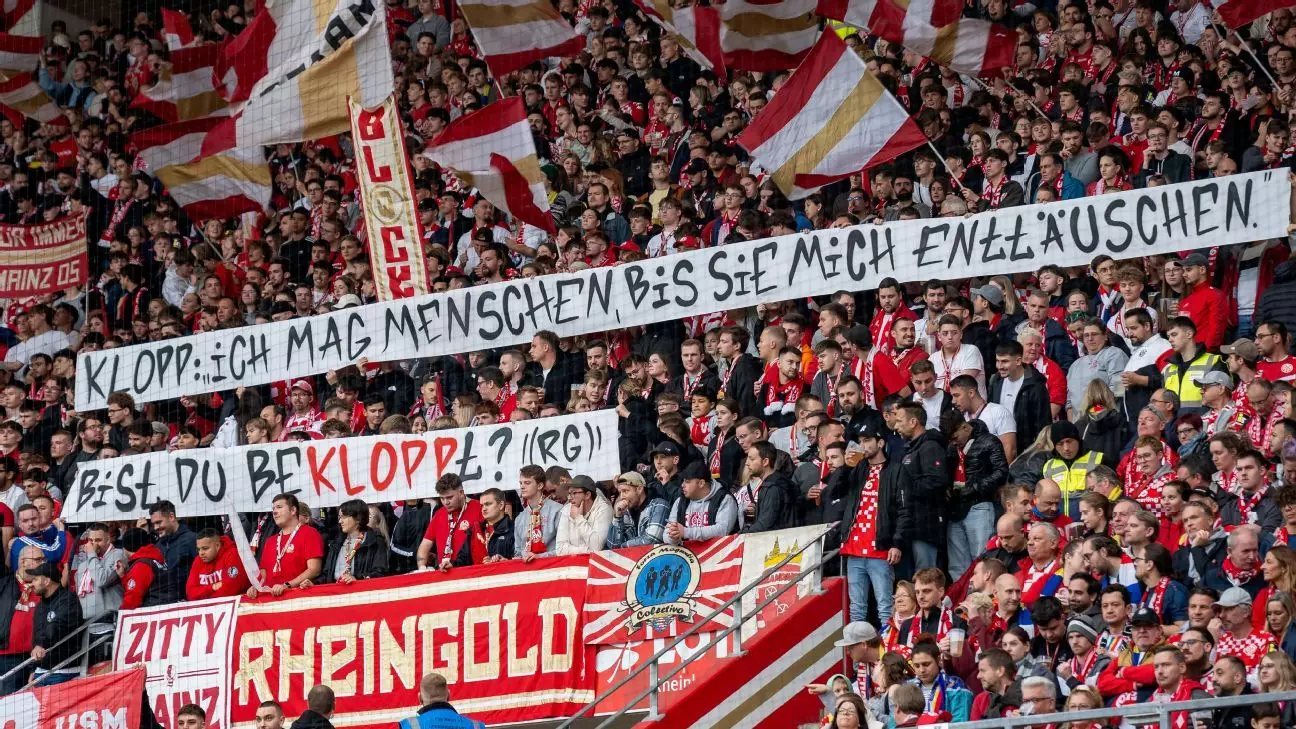Jürgen Klopp, the well-respected figure in the football world, has found himself at the center of a storm with fans of his former club, Mainz. During a recent Bundesliga match against RB Leipzig—an organization proudly backed by Red Bull—supporters displayed their discontent on banners directed at Klopp. Protests against former players taking roles in corporations that play such a controversial role in football culture remind us that loyalty in sports runs deep, but can also be fleeting.
Echoes from the Past
The banners served as poignant reminders of Klopp’s history at Mainz, as they questioned the integrity of his choices. One banner boldly proclaimed, “Have you forgotten everything we gave you?” This sentiment resonates particularly strong, considering Klopp’s emotional farewell to the club after an impressive 18-year tenure as both player and coach. His departure in 2008 was laden with heartfelt gratitude, making the stark contrast of his current role even more pronounced.
Another banner used a clever play on words, incorporating the term “bekloppt,” which translates to “crazy” in German, and making it a pun on Klopp’s last name. This clever wordplay reflected a level of disbelief among the fans; they found it hard to reconcile the man they once adored with his new association with the energy drink giant. Such sentiments underscore a broader unease among supporters concerning the commercialization of football, a theme that resonates in discussions surrounding player loyalty and club identity.
Klopp’s new position as the Head of Global Football for Red Bull, set to commence in January, has clearly raised eyebrows. In this role, he will oversee an international network comprising clubs like RB Leipzig, RB Salzburg, the New York Red Bulls, and others globally. This type of role suggests not simply involvement in one football project, but rather a pivot toward a corporate football ideology that challenges traditional club values.
Although Klopp has achieved impressive accolades with clubs such as Borussia Dortmund and Liverpool—where he clinched both the Premier League and Champions League titles—his recent choices illustrate a troubled intersection of personal ambition, club legacy, and commercial interests. The stark juxtaposition of his impressive managerial career against the backdrop of corporate affiliations is creating fissures in his relationships with fans who once viewed him as a hero.
This controversy brings to light significant questions about the future of football culture. As corporations like Red Bull stake their claims in the football world, the identities of clubs—and the legacies of their former stars—can become muddied. The discontent from Mainz fans illustrates a rising concern: can loyalty withstand the tides of commercialism? Klopp’s journey raises profound questions, challenging supporters to consider the implications of club ambassadorship in an age where football is increasingly driven by corporate interests.

